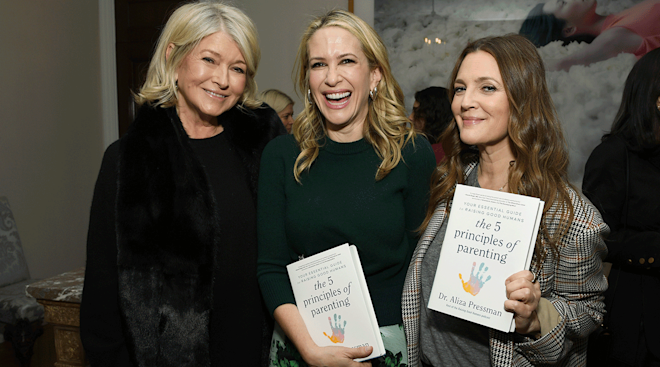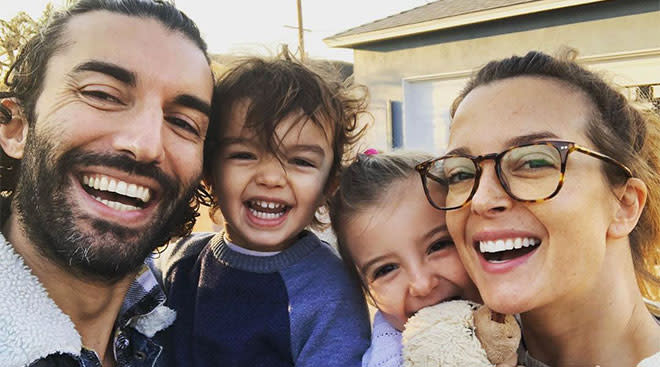Talk Is Not Cheap: the Value of Talk Therapy for Mothers
Motherhood stirs up a well of emotion, often too complicated to sort through on your own. The experience of having seemingly contradictory emotions from day to day, even moment to moment, is part of what makes the motherhood journey so rich and, at times, so overwhelming.
From the time you’re visibly pregnant, friends, family and even strangers feel free to offer advice. Some of it may be welcome. Some of it may not. But nearly everyone has something to say about your having a baby. All of this chatter can drown out the singular voice that matters most—your own.
Finding a safe and comforting place to talk about all the emotions that come with motherhood is tremendously beneficial. One way to do this is with a therapist.
There are many different kinds of talk therapy and many different types of therapists, but the objective is to find someone you can freely share your deeply personal thoughts and feelings with without risk of judgment. The beauty of the therapeutic relationship is the freedom to be able to explore anything without fear or repercussions, which isn’t always the case in the real world.
Here’s a primer on how to find a therapist to help you feel better and make life a little easier. The word therapist is an umbrella term that covers a variety of people with varying degrees and letters after their names, but doesn’t offer much in the way of practical information.
Read on to get the 411 on who can do what and where to find them.
Licensed Clinical Social Worker (LCSW/LICSW)
Licensed Clinical Social Workers hold a Masters in Social Work and have completed a number of years in the field providing clinical services. LCSWs (or LICSWs) may not prescribe medication, which is why they’re often more affordable than other mental health practitioners. However, most have working relationships with colleagues who do have prescription-writing privileges and can make referrals when needed.
Licensed Marriage and Family Therapist (LMFT)
An LMFT is a state-licensed Masters-level practitioner who typically focuses on treating couples and families. Most don’t work with individuals, but you may find one who does. Therapy with an LMFT will focus on a couple or family as a whole. LMFTs do not prescribe medication.
Psychiatric Nurse Practitioner (NP)
There are many kinds of NPs. Many psychiatric NPs offer counseling and work in a variety of environments, including hospitals and doctor’s offices. Though not physicians, they are able to write prescriptions.
Psychiatrist (MD)
Most psychiatrists specialize in patients with mental illnesses and usually don’t practice talk therapy. Usually, their focus is providing medication. Often a client will continue to see an LCSW for talk therapy while consulting with a psychiatrist for medication management.
Within the field of psychiatry, reproductive psychiatry has developed as a specialization. A reproductive psychiatrist specializes in women’s mental health issues through the lifespan, particularly those that relate to the menstrual cycle, menopause and fertility.
Psychologist (PhD or PsyD)
Psychology is a broad field and practitioners specialize within a distinct area of psychology (clinical, industrial, school, environmental, etc.) Clinical psychologists often provide counseling. These professionals are not medical doctors and cannot prescribe medication.
This very basic introduction covers some of the most commonly practiced forms of therapy, though there are almost as many kinds of talk therapy as there are kinds of strollers.
Cognitive Behavioral Therapy (CBT)
CBT involves in-session exercises and between-session homework aimed at helping clients change destructive thoughts and behaviors, lessening anxiety, stress, and depression, and improving one’s sense of contentment. CBT has been proved effective as a treatment for OCD, which sometimes occurs for the first time during pregnancy or after birth. CBT is usually a time-limited therapy that typically lasts a few months.
Eye Movement Desensitization and Reprocessing (EMDR)
This may be a smart option for moms who have had the misfortune of a traumatic birth or history of abuse. Everyone has trauma to varying degrees. Therapists practicing EMDR are specially trained to work with those who’ve been traumatized. EMDR is a scientifically proven, non-invasive technique which helps the brain reprocess traumatic experiences, making disturbing thoughts less upsetting and easier to manage. EMDR is typically time-limited.
Group Therapy
Therapy groups come in many different forms. New mom groups, which usually allow you to bring your baby with you, offer an opportunity to meet other women transitioning to motherhood and help you find camaraderie. Psychotherapy groups, by contrast, offer an opportunity to gain self-awareness in the company of others who are also interested in deeper insight. If the group makes you feel safe and supported enough to share your feelings without fear of judgment, it can work wonders.
Psychodynamic Psychotherapy
This style of treatment has roots in psychoanalysis and is based on taking account of one’s unconscious mind and personal history. Its practices are aimed at helping you evolve and gain self-awareness, which may lead to greater contentment. Psychodynamic psychotherapy is typically long-term, though financial and time constraints make this less often the case in recent years. This may be a good option for you if you’ve had a difficult childhood or have a challenging relationship with your own parents.
Tele-therapy
Apps like Maven, Talkspace and Better Help allow you to browse therapists and schedule an online session. This kind of therapy has been growing in popularity in recent years because it allows you the convenience and flexibility of staying home for treatment.
If you’re feeling severely depressed or having thoughts of harming yourself or your baby, talk therapy is not the best solution. This should be considered an emergency—more immediate support is required. Speak with your doctor now. Serious postpartum or perinatal depression is often entirely treatable and the sooner you take action to get the help you deserve, the more quickly you’ll begin to heal and feel better.
Like a favorite pair of pre-pregnancy jeans, a therapist should be a comfortable fit. You may need to try a few before deciding who’s right for you. In terms of where to start, there are a number of ways to find someone:
Health Insurance Provider
More and more therapists are opting not to take insurance because of the time-consuming paperwork or poor reimbursement. If a therapist doesn’t accept insurance, ask her if she offers fees on a sliding scale.
Doctor Referral
Call your ob-gyn, midwife, GP or baby’s pediatrician and ask for a referral to a psychotherapist or local support group.
Enter your zip code on this site and you’ll find a list of local mental healthcare providers.
Friends & Family
There’s no shame or embarrassment in asking for help; I wrote my book Mother Matters because support and help are a necessity during this time in your life. But keep in mind that seeking a referral from friends or family can open a door to questions and judgments. Your business is yours alone—if and with who you share it is your choice alone.
Spending a few minutes speaking on the phone with a few different providers is very helpful. To find the person right for you, ask yourself: How do I feel on the phone with this person? Are they really listening? Do I get a good vibe? If you can answer a firm “yes” to all of the above, that’s a good place to start. Ask about bringing your baby to the session. Note the answer and the tone of the response. Ultimately, when it comes to deciding on a therapist, tune down your intellectual voice and turn up your emotional one. The gut usually knows before the head does.
A final note on therapy. Like many good things in life, it doesn’t come easy and it doesn’t come quick, but it can be infinitely worth doing. Therapy only works when you are absolutely committed to it. This is not to say you have to sign your life (or your bank account) away, but you need to be willing to do the following to maximize the potential benefits:
- Show up regularly for at least three months (think of it as a fourth trimester). At that point, you and your therapistcan evaluate how things are going.
- Do your homework in between sessions. If your therapist gives you an assignment, don’t blow it off. Working on yourself between appointments can deepen the experience and sometimes expedite the effectiveness of treatment.
- Be honest. Lying to your therapist (and plenty of people do) only does you a disservice. If you don’t feel you can trust this person, ask yourself why that might be. If the answer is compelling, find someone else.
- Be brave. Here’s the thing about talk therapy: You may feel worse before you feel better. Not unlike birth itself,therapy can be painful, messy and sometimes frightening. The result of going through the process, though, can be positively life-changing.
Many new moms find that spending time in a therapist’s office makes them feel a whole lot better. And for many moms, better feels pretty good.
This article is adapted with permission from Familius. Excerpt from Mother Matters: A Holistic Guide to Being a Happy, Healthy Mom by Dayna M. Kurtz, LMSW, CPT.
Dayna M. Kurtz, LMSW, CPT, is a leading authority on the subject of women transitioning to motherhood and serves as Director of the Anna Keefe Women’s Center at the Training Institute for Mental Health in Manhattan. She is a writer, licensed social worker and NASM (National Academy of Sports Medicine) Certified Personal Trainer with an additional certification in training pre- and postnatal clients. Dayna is the author of The Female Body Fix and a contributor to The Doctor’s Book of Natural Remedies (both published by Rodale, 2018). Dayna also serves as a Real Answers expert on TheBump.com.
Published April 2018
Please note: The Bump and the materials and information it contains are not intended to, and do not constitute, medical or other health advice or diagnosis and should not be used as such. You should always consult with a qualified physician or health professional about your specific circumstances.
Navigate forward to interact with the calendar and select a date. Press the question mark key to get the keyboard shortcuts for changing dates.




















































